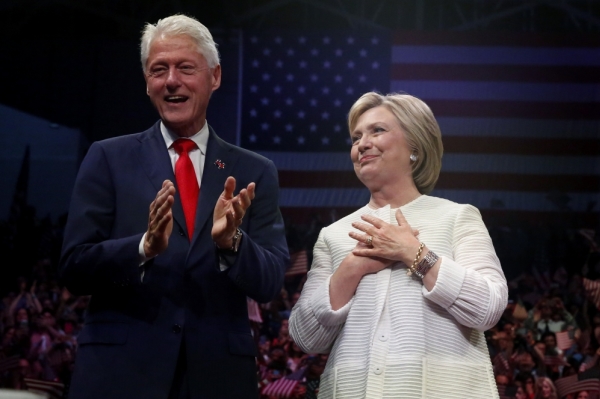Can the coronavirus inspire another Clapham Movement?
In the beginning of the 19th century, England was the biggest superpower on earth.
It was also a nation in crisis.

The First Industrial Revolution was creating enormous opportunity, but with it, upheaval. Social unrest, driven by injustice, was an issue that threatened to tear society apart. The slave trade continued unabated, the average family worked and lived in appalling conditions, trust in institutions was low, and the government was ineffective at addressing the problems at hand.
This environment brought about a movement called the Clapham movement — a unique collection of Christian leaders in politics, business, and the arts who came together and almost single-handedly changed culture and the future of England and influenced the Western World for generations.
These professionals started with a simple question: What would it look like if our talents were used to advance God’s kingdom, instead of our own personal gain?
If it were possible to effect the change that so many in England had given up on, they wanted to try.
Led by the most well-known member of the group, famed British Parliamentarian William Wilberforce, they focused their attention on issues such as ending the horrific slave trade, for which they are well known for today. This was a monumental undertaking that took decades to accomplish. But accomplish it they did — not just changing the laws but changing the culture. And in typical entrepreneurial fashion, along the way they brought change to working conditions in the English factories, improved the prison system, ended sports that engaged in animal cruelty, and founded the Church Missionary Society, an organization still in existence today that has equipped thousands to spread the Gospel around the world.
This seismic shift was accomplished by a God-ordained group who dreamed big and worked closely together — collaborating and supporting each other, even encouraging one another in the work when they felt burnt out and wanted to give up.
But while the Clapham movement has received the most attention in the history books, they weren’t the only people actively applying their faith to entrepreneurial endeavors and solving societal ills.
English Quakers, because of discrimination against their beliefs, were excluded from holding public office or prominent positions in business. As a result, they began to create their own businesses and financial institutions and brought their closely held faith into their day-to-day endeavors. They created ethical companies that cared for their workers and dealt honestly with all they did business with. This not only influenced the industries of the day but some of these organizations still exist today, like manufacturers Cadbury and Rowntree, and the bank Barclays and Lloyds.
And the German Moravians, who realized that creating businesses in communities allowed them to not only fund their faith-minded outreach efforts but also allowed them to be a part of the local community, helping from the inside, rather than an outside group trying to solve issues they didn’t understand.
Fast forward 200 years and we find ourselves in a similar place. We are now entering the Fourth Industrial Revolution and are experiencing similar opportunities and upheaval. Pastor and author J.D. Greear observed that, in this age, entrepreneurs are once again the “new cultural change agents.” Business leaders today have the opportunity to pick up where our predecessors left off.
We already know we can do it, because it’s already being done. Faith-driven entrepreneurs are stepping up to solve the big problems in our own backyards and around the globe.
There’s Casey Crawford, who started Movement Mortgage to address inadequacies in the lending industry and solve the community problems that followed. His company now is not only responsible for financing one out of every 60 home purchases in the country, but the Movement Foundation has invested $25 million toward community improvement in the U.S. and around the world.
That was also true for John and Ashley Marsh, who, after their own lives and marriage were radically redeemed, founded the Marsh Collective, an investing and consulting group that focuses on redemptive real estate. Through their efforts Marsh Collective has helped steward over $1 billion in redemptive real estate, restoring small towns and returning beauty and purpose to communities.
And Mark Sears, founder of Cloud Factory, whose company is already connecting thousands of people in Nepal and Africa with meaningful work. In addition to giving people a way out of poverty for themselves, Cloud Factory is also equipping leaders who can help address poverty in their own communities. Part of Cloud Factory’s success has come from its partnership with Praxis, a leader in this movement. They are an accelerator program for redemptive entrepreneurship, supporting founders, funders, and innovators who are motivated by their faith to renew culture and love their neighbors. Co-founded by Dave Blanchard, whose focus is encouraging Christian-led entrepreneurship that has a positive impact on society, the Praxis portfolio now includes over 160 active business and nonprofit ventures in 43 countries and has created over 5,100 full-time jobs.
So, what if faith-driven entrepreneurs, not just in the U.S. but worldwide, went all-in to commit their creative talents and abilities to advance God’s kingdom and be the agents of change for justice, equality and eradication of poverty?
What would happen if a new Clapham-style movement weren’t limited to an influential area near London, the world’s most consequential city at the time, but a worldwide movement of faith-driven entrepreneurs — all tackling the unique problems and injustices that they’ve been called to, and working together with a singular purpose to advance God’s kingdom on earth? When you combine that idea, with the estimate that Christians manage $150 trillion dollars — over half of the world’s wealth — the potential for real change is exponential.
Only God knows what’s fully possible when Christian business leaders come together with biblically informed passion and focus, but I’m calling on my fellow entrepreneurs to join me in dedicating our time, talent and treasure to God — to see the world through His eyes and then to watch the opportunities that God accomplishes through us all.
Henry Kaestner is a Managing Principal in Sovereign's Capital and the founder of Faith Driven Entrepreneur





















